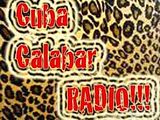 Photo Credit:Joaguín Ordoqui García
Photo Credit:Joaguín Ordoqui GarcíaAsere is an Efik salutation or greeting commonly used by members of the Abakuá society in Cuba. In more modern times it has become a term very closely linked to the Cuban identity, used as a greeting among close friends ,or brothers. Nunkue is an Efik word for capital(Roche) which the Abakuá in Cuba have adapted as an Efik name for Havana.
In the 20’s the Cuban Son was at the height of its popularity in Cuba. Due In great part to the technological innovations of the 78 rpm. Columbia records and Victor were both issuing recordings of sextetos from Havana in the 1920's. Unlike the larger Danzón orchestras of the time, the mobile nature of these smaller sexteto groups immediately made them very popular(Diaz-Ayala). Despite the reduced instrumentation the sexteto created a big enough sound to get the attention of the dancers and keep them on the dance floor. The strident and aggressive voices of Abelardo Barroso , Machin and Maria Teresa Vera proved to be adequately suited to these groups.
When the Son arrived in Havana it became very popular among the rumberos. Evidence of this can be found in the large number of sextetos that came out of neighborhoods like Jesus Maria, Cayo Hueso and Los Sitios located just outside Havana’s city walls. They were home to many of the Port of Havanas labor force and many of Havana’s Abakuá lodges. These extra mural neighborhoods produced some of Cubas most famous rumberos and rumba groups and spawned Sextetos like the Sexteto Habanero, Sexteto Machin featuring singer Abelardo Barroso, Sexteto Boloña, Sexteto Munamar, Sexteto Columbia, Sexteto Matancero founded by Issac Oviedo and Sexteto Occidente which featured some of Cuba’s first recorded Abakuá chants in a Son context. Penned by Ignacio Piñeiro (Havana, 21 May 1888 – 12 March 1969) Abakuá member of the Efori Nkomon lodge. The poet of the Cuban Son went on to form the Septeto Nacional de Ignacio Piñeiro in 1927 and became one of Cuba’s most celebrated arrangers and composers.
The lead singer and guitarist of the short lived Sexteto Occidente was Maria Teresa Vera (1895-1965). A star in her own right, she performed at the Apollo theater in Harlem at 23 years of age before an adoring crowd and went on to become the Mother of the Trova . She can be heard on the 27 recorded songs in Occidentes discography on Columbia Records starting in 1926.
The podcast features two of Cubas legendary sextetos. Sexteto Occidente and Sexteto Habanero. The latter is the only existing Cuban sexteto. We end the podcast with another Ignacio Piñeiro composition ushering in the era of the Septeto with his Septeto Nacional. These selections come from the collection of Dr. (Chief) Ivor Miller author of Voice of The Leopard, where you may find a detailed account of the compositions below and their Abakuá influences.
---------------------------Onel Mulet for N'dibo Yeve Ngo
Podcast Tracks
Los Cantares del Abakua (Sexteto Occidente)
Criolla Carabali (Sexteto Habanero)
En La Alta Sociedad (Sexteto Occiedente)
Efi Embemoro (Septeto Nacional Ignacio Piñeiro)


No comments:
Post a Comment